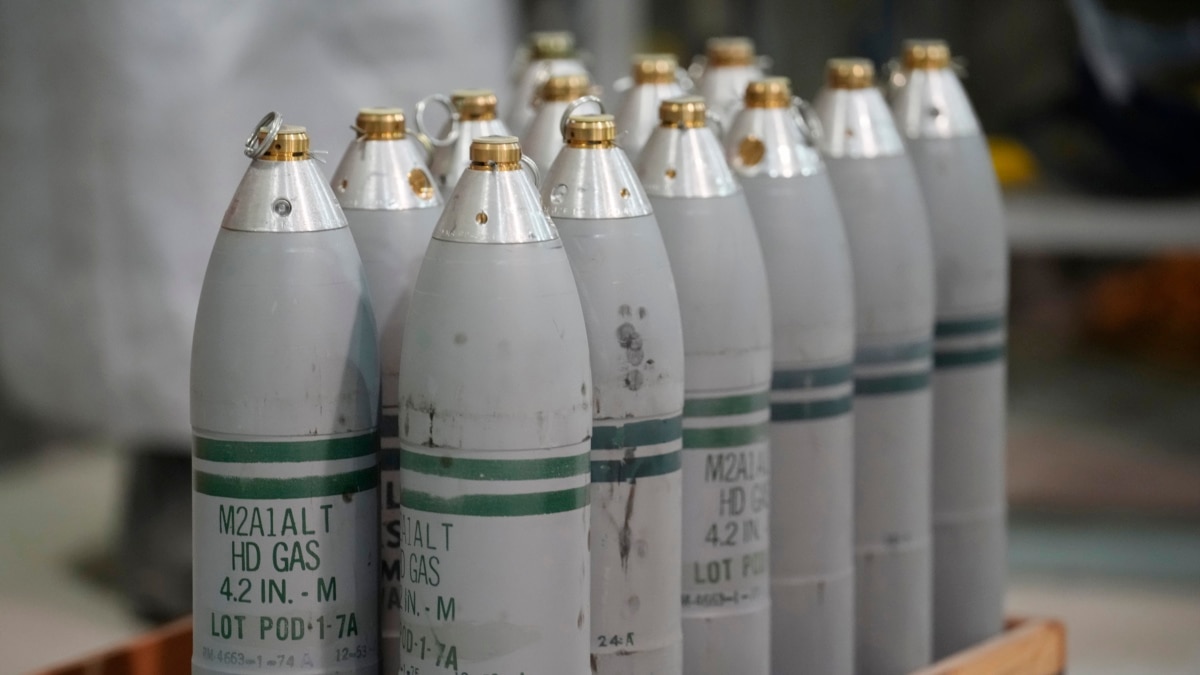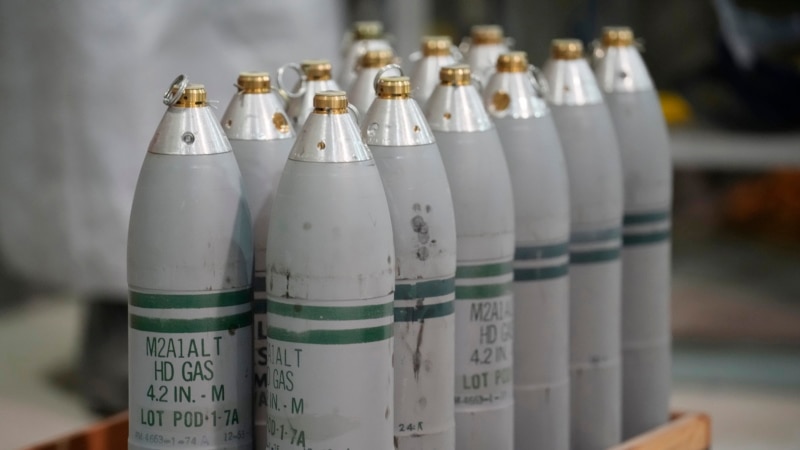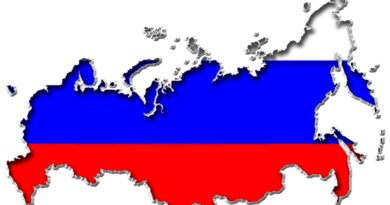Russia Beefs Up Disinformation About U.S. Chemical Weapons in Ukraine

On February 19, Lieutenant General Igor Kirillov, commander of the Russian army’s radiation, chemical and biological protection force, accused the United States of violating its international obligations by keeping its chemical weapons and transferring them to Ukraine. Kirillov claimed, without evidence, that Kyiv used U.S. chemical weapons against the Russian troops.
Both the United States and Russia are signatories to the 1997 Chemical Weapons Convention (CWC), which prohibits the production, stockpiling or use of chemical weapons and requires the 193 signatory states to destroy their existing chemical weapons.
Under the CWC, the U.S. and Russia pledged to destroy their chemical weapons stockpiles by 2007.
In a statement published on the Russian defense ministry’s Telegram channel, Kirillov said:
“Russia destroyed all stockpiles of chemical weapons in September 2017, and this was done ahead of schedule. … In accordance with the deadlines set by the OPCW, the United States was supposed to complete the destruction of declared stockpiles of chemical weapons in 2007, however, despite the existing economic potential, it did this only in 2023. … During a special military operation, cases of the use of American chemical munitions by the Ukrainian armed forces were recorded.”
That statement includes both false and unsubstantiated assertions.
Both Russia and the United States missed the initial 2007 deadline. The U.S. had, by that year, destroyed 46% of its stockpiles, while Russia reported destroying 22% of its stockpiles. The CWC extended the deadline to 2012.
By the second deadline, the U.S. reported it had destroyed 90% of its chemical weapons, while Russia said it had destroyed 62% of its stockpiles.
In 2012, Russia and the U.S. announced new deadlines. Moscow committed to destroying all its chemical weapons by the end of 2015 while Washington said it would by 2023.
Russia failed to meet the third deadline but finally announced in 2017 that it had destroyed all its chemical weapons stockpiles.
The U.S. met the third deadline, announcing in July 2023 that it had destroyed all its chemical weapons stockpiles.
The key difference between the U.S. and the Russian protocol for destroying chemical weapons is how the two nations define “destruction.”
The U.S. military has spent years developing methods to destroy its chemical weapons without causing toxic pollution and health effects. It later had to take more time to improve safety measures, after making mistakes and coming under heavy criticism.
Russia’s method of chemical weapons destruction, while faster, produced large quantities of toxic waste as a byproduct. Moscow said in 2017 that its trade and industry ministry would take care of decontaminating that waste but reported no progress in the seven years that followed.
Kirillov also omitted that the United States provided Russia with significant assistance and funding in destroying its chemical, biological and nuclear weapons in the former Soviet republics within the framework of the Cooperative Threat Reduction program, also known as the Nunn-Lugar program.
Since launching its full-fledged military invasion of Ukraine two years ago, Russia has repeatedly accused Kyiv of using chemical weapons without providing any evidence to back its claims.
During just nine months after launching its war in Ukraine, Russia “sent a volley of diplomatic notes… at least 20 of them containing claims about alleged Ukrainian plans to use chemical weapons or toxic chemical substances,” 54 state parties to the Chemical Weapons Convention said in a joint statement in November 2022:
“There has not been a single case in which any credible evidence has been presented. Nor has there been any case where these allegations turned out to be correct or the predicted events actually and verifiably happened.”
The statement by the 54 CWC signatory nations concluded: “We judge that Russia made these claims with the sole purpose of trying to justify its war of aggression. There is no substance behind these claims. They are part of an elaborate, malicious disinformation campaign launched by Russia.”
The absence of evidence in such cases raises legitimate doubts about the validity of the accusations, given that chemical attacks usually leave behind a significant amount of physical evidence.
The United Nations Organization for Prohibition of Chemical Weapons (OPCW) investigates incidents involving the suspected use of chemical weapons. The OPCW experts collect samples for forensic analysis to verify such claims, as was the case in Syria, where the U.N. confirmed five instances of Bashar al Assad regime’s use of Russia-made chemical weapons in 2017-2018.
Russia used chemical weapons after announcing it had completely destroyed its stockpiles in 2017, including in attempted assassinations using variations of Novichok, a Soviet-produced military grade nerve agent.
In March 2018, the U.K. announced that “one of a group of nerve agents known as Novichok,” was used in the attempted murder of former Russian military intelligence (GRU) officer Sergei Skripal and his 33-year-old daughter Yulia in the city of Salisbury on March 4, 2018.
In June 2018, a U.K. citizen died from exposure to Novichok used in the attack on the Skripals.
In November 2019, four variants of Novichok, were on the OPCW’s list of toxic chemicals and precursors used as chemical weapons, or used to make chemical weapons and having no or few uses other than combat.
On October 6, 2020, the OPCW confirmed that in August 2020, Russian opposition leader Alexey Navalny was poisoned with a chemical nerve agent from the Novichok group.
Even though the type of Novichok used to poison Navalny is not on the list of substances prohibited under the Chemical Weapons Convention, the OPCW told Polygraph.info that “all toxic chemicals and their precursors, except when used for purposes permitted by the CWC in specified quantities, are chemical weapons,” and thus banned under the convention.
The United States voiced concern that Moscow’s use of Novichok may be evidence that Russia has secretly retained at least part of its chemical weapons arsenal.
In a March 2022 interview with CNN, U.S. President Joe Biden warned Russia that Moscow would “pay a severe price” if it uses chemical weapons in Ukraine.



